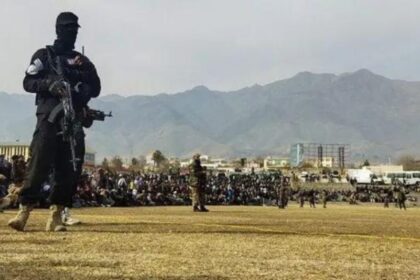RASC News Agency: In the southeastern province of Khost, the slow erosion of hope has claimed yet another pair of lives. On the evening of Tuesday, August 12, a husband and wife from a remote village in Ismail Khel district ended their own lives, unable to endure the relentless weight of destitution. Local residents recount that the family had been trapped for months in the grip of extreme poverty, struggling to secure even the barest essentials for survival. With no viable employment opportunities and income reduced to a trickle, their situation mirrored that of countless other families in Khost, where livelihoods have been gutted and the local economy lies in ruins.
This double tragedy is not an isolated incident, but part of a staggering escalation in self-inflicted deaths across the province. Within the previous 48 hours alone, two others had taken their lives: a graduate of Sheikh Zayed University in Khost, who hanged himself in the village of Khadar Piran, and a 17-year-old named Bilal from Ali Sher district, who ended his life with a gunshot. Days earlier, a 15-year-old girl and a 13-year-old boy also succumbed to despair. In total, local sources have documented eight suicides in Khost within the past two weeks, painting a devastating portrait of a community suffocating under economic collapse and hopelessness. Residents and civil society observers identify the root causes with grim clarity: deepening poverty, the total absence of job opportunities for young people, escalating mental health crises, and a suffocating sense of abandonment. For many, the future under Taliban rule has shrunk to a barren horizon, offering nothing but hardship and humiliation.
Yet, rather than confronting the humanitarian emergency, the Taliban have chosen to tighten their stranglehold on truth itself. Independent reporting on suicide cases has been effectively outlawed, with local media threatened into silence. The regime prohibits the publication of such stories, censors details surrounding suspicious deaths, and even bans the sharing of victims’ images on social media. Human rights organizations confirm that many similar tragedies in remote districts never reach public awareness, buried under a mixture of Taliban intimidation and deeply ingrained social stigma.
The World Health Organization has issued repeated warnings about Afghanistan’s rapidly escalating suicide rates, particularly among youth, women, and girls. According to WHO assessments, this crisis is the direct consequence of widespread despair, psychological breakdown, and trauma intensified by Taliban-imposed restrictions from the denial of education and public participation to the suffocation of economic opportunity. With virtually no access to mental health care or professional counseling, millions of Afghanistanis now face a silent, unrelenting assault on their psychological well-being.
Under the Taliban’s authoritarian grip, Afghanistan’s suicide crisis is not merely a public health emergency it is a deliberately neglected human catastrophe. Censorship serves as a weapon, ensuring that the extent of the suffering remains hidden from the world. Unless the international community intervenes decisively restoring access to education, livelihoods, and mental health services the country risks losing an entire generation, not to war, but to the quiet devastation of despair.






